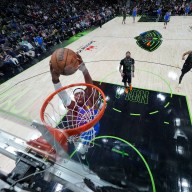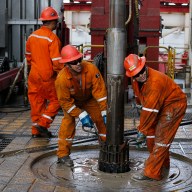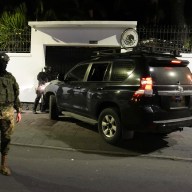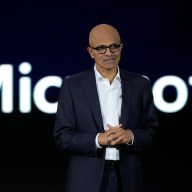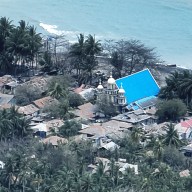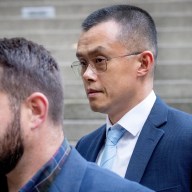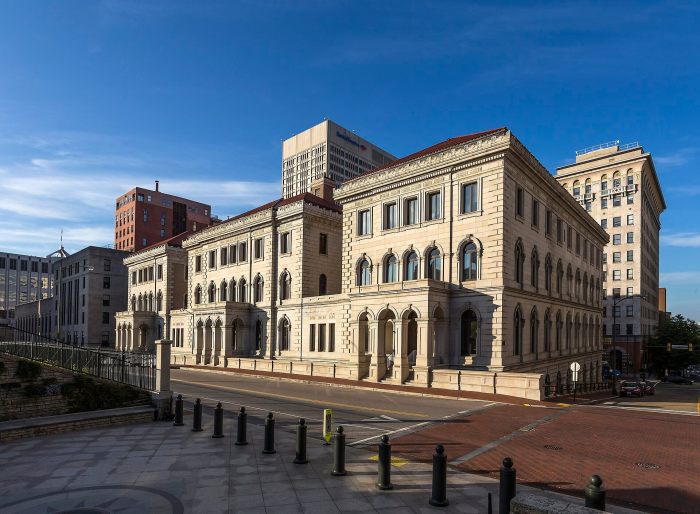BEIRUT – Shiite Hezbollah supporters and Sunnis backing Lebanon’s U.S.-allied government battled Thursday in the streets of Beirut with guns, stones and rocket-propelled grenades, killing two people in a second day of sectarian violence that has evoked bitter memories of the country’s long civil war.
Fighting intensified after Hezbollah leader Hassan Nasrallah warned of swift retaliation to any attacks on them. Rival Sunni politician Rafik Hariri later attempted to calm the situation by offering a compromise.
“My appeal to you and to myself as well, the appeal of all Lebanon, is to stop the slide towards civil war, to stop the language of arms and lawlessness,” said Hariri, the son of a slain former prime minister, in a televised appeal to Nasrallah.
Earlier, the Hezbollah leader accused the government of declaring war on his group with its recent decision to shut down the Shiite militants’ private telecommunications network. He warned against trying to disarm the group.
“Those who try to arrest us, we will arrest them. Those who shoot at us, we will shoot at them. The hand raised against us, we will cut it off,” Nasrallah said in a news conference via videolink from his hiding place that was broadcast live on television.
Within minutes of his address machine gun fire and explosions rang out in the Muslim western sector of Beirut as masked gunmen opened fire on street corners. In troubled neighbourhoods, people stayed indoors, huddled in hallways or staircases as armed men rushed from one street corner to another.
Others took their families and moved to safer neighbourhoods while people stocked up on food, standing in lines at supermarkets.
“There is so much shooting and explosions outside,” said Beirut resident Ghada Helmi. “Our building is in the middle of the fighting,” the terrified woman said by telephone.
The clashes also spread outside the capital Thursday and shut down the country’s main gateways to the outside world.
The violence appeared to be a test of wills between the Hezbollah-led opposition and the western-backed government who have been locked in a 17-month power struggle. But there was a risk the escalation could degenerate into a wider and deadlier sectarian conflict.
That could also have implications for the entire Mideast at a time when Sunni-Shiite tensions already are high. The tensions are fuelled in part by the growing rivalry between Iran, which sponsors Hezbollah, and Sunni Arab countries like Saudi Arabia and Egypt.
Egypt said it will convene an emergency Arab Foreign Ministers meeting to discuss the situation in Lebanon, according to the foreign minister’s spokesman Hossam Zaki. He didn’t say when.
In Lebanon, the Sunnis’ spiritual leader – a government ally – denounced Hezbollah and appealed to a largely Sunni Islamic world to intervene. Arab heavyweights Saudi Arab and Egypt, both strong supporters of the U.S.-backed government, urged parties in Lebanon to restore calm and avoid sectarian clashes.
The latest round of violence was touched off by the government’s decision Tuesday to confront Iranian-and Syrian-backed Hezbollah.
It declared its military telecommunications network illegal, saying it was a threat to state security. The government also said it would dismiss the security chief of the country’s only international airport because he was suspected of ties to Hezbollah.
Hezbollah runs its own secure network of primitive private land lines. Nasrallah has said the network helped the guerrillas fight Israel’s hi-tech army in the 2006 summer war. He and other Hezbollah leaders have suggested they are regularly targeted by Israel and they need secure communications.
Nasrallah said the decision to declare its network illegal is “tantamount to a declaration of war … on the resistance and its weapons in the interest of America and Israel.”
“I am not declaring war. I am declaring a decision of self-defence,” he said. The government has “crossed all the red lines. We will not be lenient with anyone.”
Nasrallah said Maj.-Gen. Wafiq Shukeir, the airport security chief that the government decided to remove, will stay in his post, rejecting any replacement.
The government’s decision to replace him came after pro-government leader Walid Jumblatt alleged Hezbollah had set up cameras near the airport – which is located in the Hezbollah stronghold of south Beirut – to monitor the movement of anti-Syrian Lebanese politicians and foreign dignitaries. Jumblatt suggested Hezbollah was planning to bomb aircraft to assassinate such figures.
Nasrallah said the only way out of the confrontation is for the government to revoke its decision.
In Beirut, Hezbollah supporters kept the road to the airport blocked for a second day Thursday. There were no incoming flights on Thursday and many of the outgoing ones were either postponed or cancelled.
In an apparent retaliation for the airport siege, government supporters blocked the main coastal highway linking Beirut with predominantly Shiite southern Lebanon.
Pro-government Sunnis also blocked the highway linking Beirut to the border with Syria in the eastern Bekaa Valley. They set up burning tires and mounds of earth near the main border crossing to Syria.
Cabinet Minister Ahmed Fatfat, a government supporter, accused Hezbollah of staging a “coup.”
“Hezbollah … is trying to blackmail the Lebanese government by taking the airport as an economic and political hostage,” he told Associated Press Television News.
But Nasrallah denied the coup accusation.
The army, which has remained above the political fray, has refrained from using force to open the airport or quell disturbances for fear of being dragged into the sectarian conflict.
The military called for calm and said the problems should be resolved by dialogue.
Though the latest clashes are rooted in politics, they quickly took on a sectarian tone. In Beirut, many residents had to navigate a city newly divided up by roadblocks and army checkpoints, a grim reminder of the 1975-1990 civil war that left lasting scars.
Most Sunnis support the western-backed government of Prime Minister Fuad Saniora. Most Shiites generally support the opposition led by Hezbollah, a group the United States has labelled a terrorist organization and which has close ties to Syria and Iran.
The long-simmering political crisis first exploded into violence Wednesday when Hezbollah supporters blocked roads in Beirut to enforce a strike called by labour unions. But it quickly escalated into street confrontations.
On Thursday, the violence spread outside Beirut. Sunnis and Shiites exchanged gunfire in the Bekaa Valley village of Saadnayel. Four people were injured, said security officials, speaking on condition of anonymity in line with military regulations.
The area is on a major crossroads linking the Shiite areas of Baalbek, a Hezbollah stronghold, with central Lebanon and Beirut.




